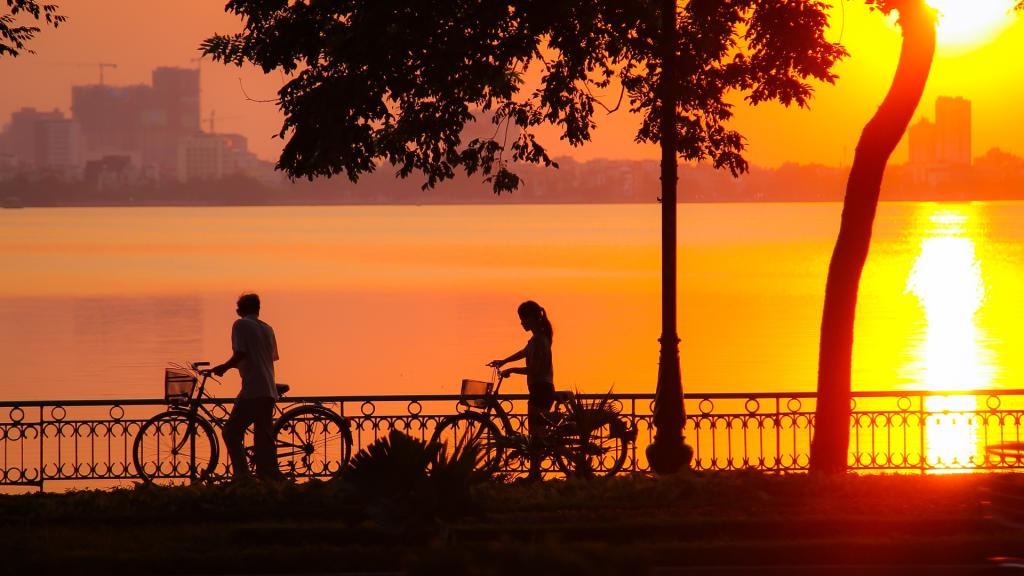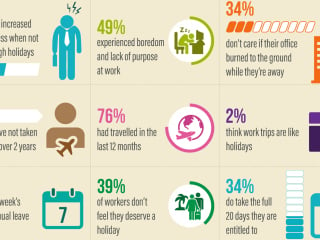What Do People Mean When They Talk About 'Slow Travel'?

Checking out from daily life, holidays are about rejuvenation. We head away to release built-up stress, to seek a change of scene and learn from unfamiliar experiences.
Yet today, this simple concept has transformed into an industry of box-ticking, of touring to say 'I've done that', and taking photographs to prove it. We now travel to purchase flimsy trinkets, hop countries and garner 'likes'. As a result, we come home and often find ourselves more exhausted than when we left. Sure, we saw, but we saw so briefly we can't remember. Yes, we bought, but then we can't recall where.
Slow travel is about opting for indepth experiences rather than maximising sites seen; it's about getting to know new cultures and learning their perspective. When slowing down we avoid travel fatigue, we foster rich memories and we actually get the chance to relax and do nothing at all.
Simple Ways To Travel Slow
Travel Less, Experience More
The most important moment of slow travel actually occurs in the planning stage. Reduce the number of destinations you wish to 'tick off' and instead, select just one or two places of interest. Stay put for a week or two and develop a routine in that quaint Thai fishing village. Discover the local markets, get to know the neighbourhood street vendors and thoroughly explore the region's natural wonders and off-beat secrets. Rather than rushing from 'must-see' site to 'top ten' attraction, make friends with your local barista, spend a day getting lost on foot and soak up the unique sounds, smells and cultural dissimilarities between your 'normal' and this unfamiliar brand of ordinary.
Speak Local
Learning a phrase or two in the native language of the country you plan to travel may be the difference between an extraordinary experience and something a little more forgettable. Communicating things like, 'hello' or 'how much is the noodle soup?' or 'how do I get to the beach?', in the local language may literally open doors. While it's true that many countries teach English as a second language, and that English is often widely spoken in tourist precincts, showing someone that you've made an effort to connect with their culture could lead to an invite into their home, to a shared dinner, a perspective exchange or simply a sincere smile in a crowded marketplace.
Read Up
Reading a book (or two) or a couple of long-form articles on the history of your next destination, may be pivotal to the increasing the quality of your experience.
By learning a little about the story of the people we're soon to meet, we find that we become more empathetic, curious travellers. We now have a host of questions we'd like to ask, we gain some understanding behind otherwise confusing customs, we develop a stronger appreciation for foreign circumstances and we learn about taboos and cultural expectations in context (helping us realise why we've been asked to do/not do something).
Take Time To Stop
Slow down, then stop. Take a day, an afternoon, a couple of hours before breakfast, and do nothing. Whether you're sitting on a wide, empty beach, or among the throng in a busy city centre, use this time to observe and refuel. In these few moments, let go of the urge to document and allow yourself to absorb.
Tell us about your slow travel experiences. Do you have any recommendations? Any regrets or special moments? Leave a comment below.
Posts by Category
Popular Posts

5 Simple Steps To Beat Jet Lag

Peak Season, School Holidays or the Off-Season When is the Best Time to Travel?

